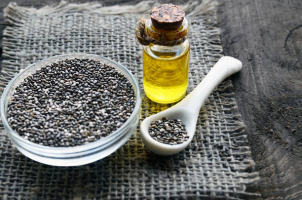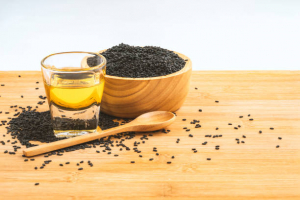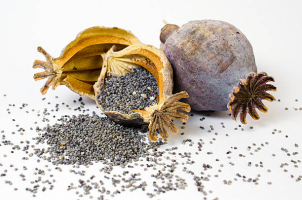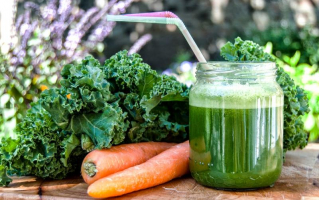Top 7 Health Benefits of Chia Seeds
Despite their small size, chia seeds are very nutrient-dense. These seeds have long been hailed for their health benefits and were a staple of the ancient ... read more...diets of the Aztecs and Maya. Chia seeds include antioxidants, minerals, fiber, and omega-3 fatty acids that may support strong bones, heart health, and improved blood sugar management. Continue reading to find out more about the health benefits of chia seeds!
-
Chia seeds (Salvia hispanica), also called Salba chia or Mexican chia, are the edible seeds of a flowering plant from the mint family. The seeds were historically used by the Aztec and Mayan civilizations for food, medicine, religious ceremonies, and cosmetics. Chia seeds are now appreciated by people all over the world.
Modern research supports the notion that chia seeds are very nutrient-dense, as believed by ancient cultures. In fact, just one ounce (28 grams or two teaspoons) of chia seeds contains calories: 138; protein: 4.7 grams; fat: 8.7 grams; alpha-linolenic acid (ALA): 5 grams; carbs: 11.9 grams; fiber: 9.8 grams; calcium: 14% of the Daily Value (DV); iron: 12% of the DV; magnesium: 23% of the DV; phosphorus: 20% of the DV; zinc: 12% of the DV; vitamin B1 (thiamine): 15% of the DV; vitamin B3 (niacin): 16% of the DV.
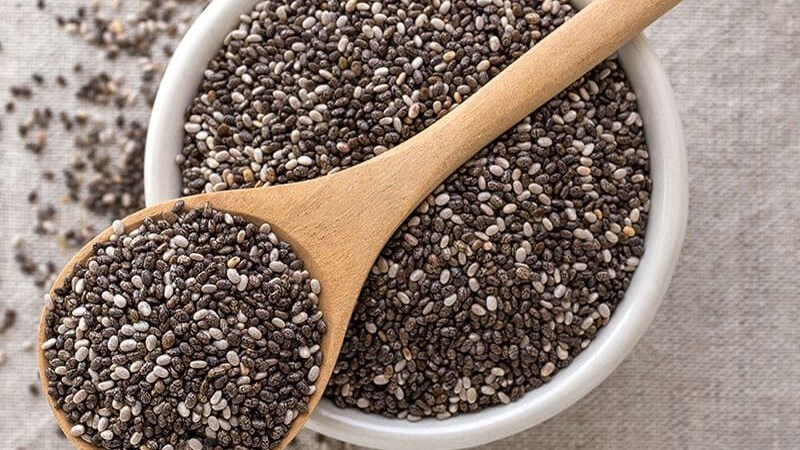
Highly nutritious 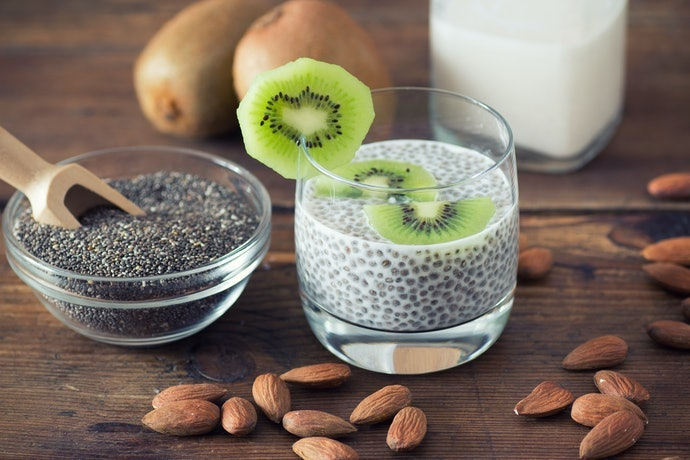
Highly nutritious -
Antioxidants are also a great benefit of chia seeds. By neutralizing reactive molecules known as free radicals, which may damage cell compounds if they accumulate in your body, antioxidants not only protect the sensitive fats in chia seeds from going rancid but also benefit human health.
For example, the damage caused by free radicals contributes to aging and diseases like cancer. Chlorogenic acid, caffeic acid, myricetin, quercetin, and kaempferol are some of the specific antioxidants found in chia seeds. These may all have protective effects on your heart and liver, as well as anti-cancer properties. For example, caffeic acid has anti-inflammatory properties while chlorogenic acid may help decrease blood pressure.
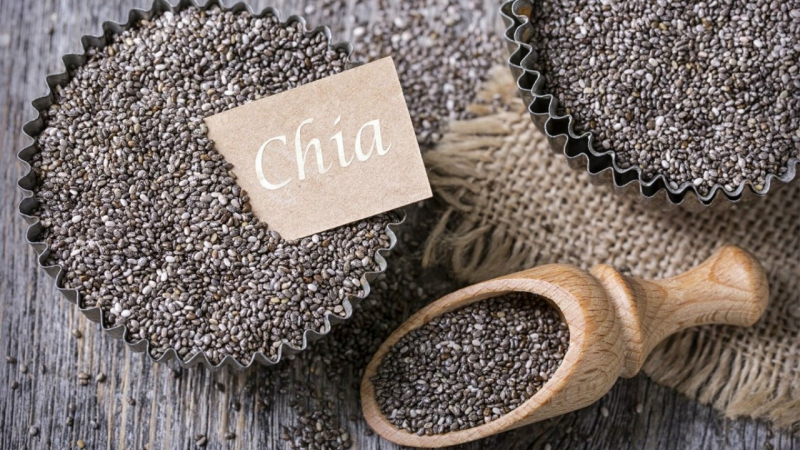
Loaded with antioxidants 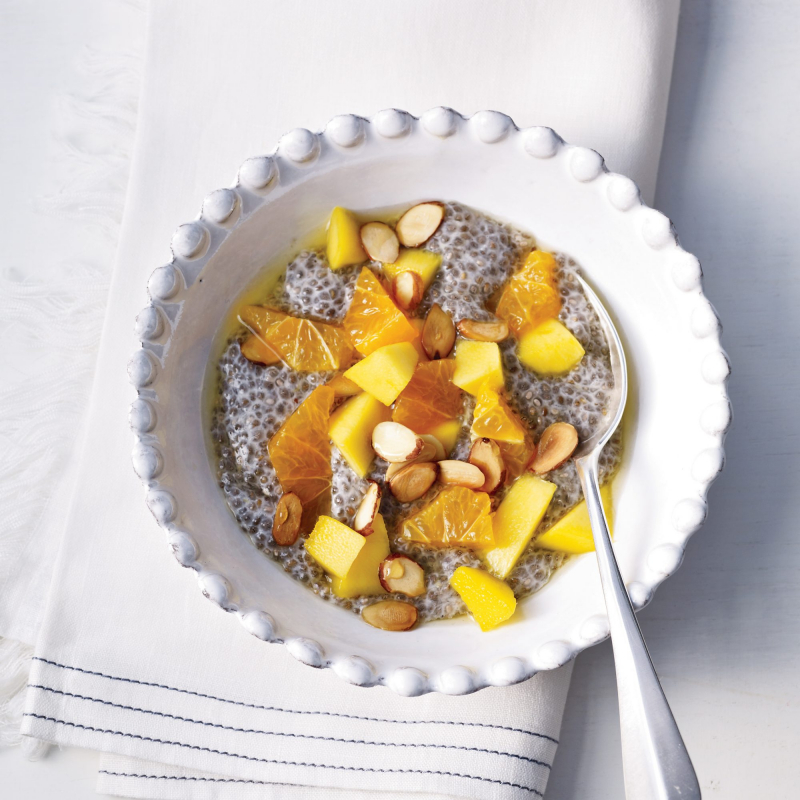
Loaded with antioxidants -
Chia seeds' fiber and protein may help those who are trying to lose weight. About 10 grams of dietary fiber are included in one ounce (28 grams) of chia seeds. Therefore they contain 35% fiber by weight.
Although there is conflicting evidence on this subject, some researchers suggest that eating fiber may help prevent overweight and obesity. The protein in chia seeds may also aid in reducing appetite and calorie intake. Compared to eating yogurt without chia seeds, one research with 24 participants found that eating 0.33 ounces (7 grams) or 0.5 ounces (14 grams) of chia seeds mixed with yogurt for breakfast boosted feelings of fullness and decreased food intake in the short term. Furthermore, in a 6-month study of 77 overweight or obese people with type 2 diabetes who were on a low-calorie diet, it was shown that those who took chia seeds daily dropped considerably more weight than those who got a placebo.
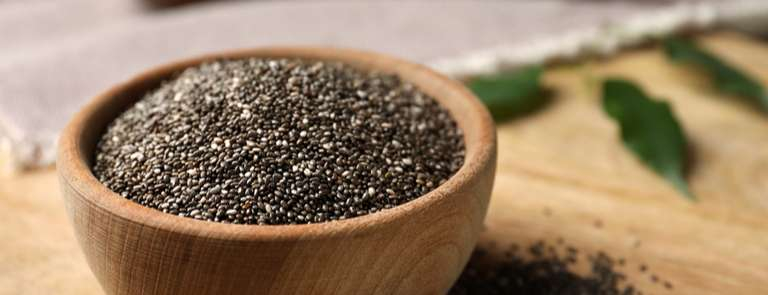
May support weight loss 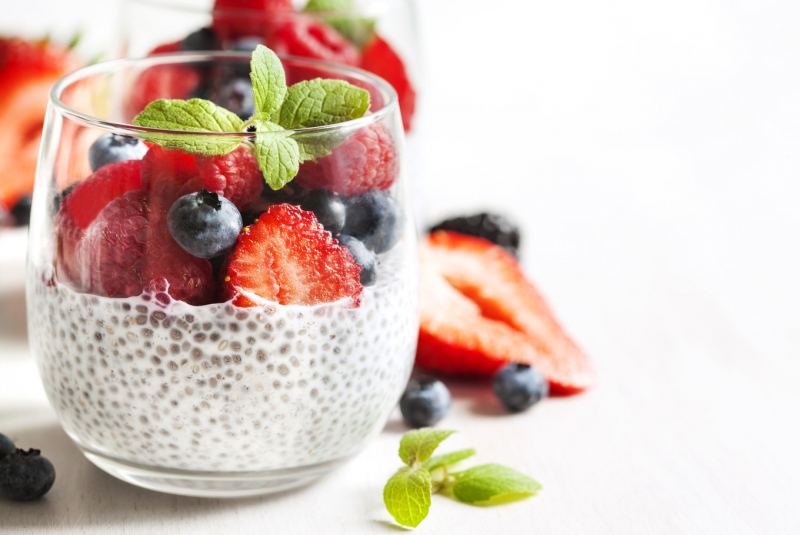
May support weight loss -
Consuming chia seeds may lower your risk of heart disease due to their high fiber and omega-3 content. Chia seeds and other sources of soluble fiber can help reduce blood levels of total and LDL (bad) cholesterol. This can eventually lower your chance of developing heart disease.
Consuming ALA, an omega-3 fatty acid found in chia seeds, has also been associated with a lower risk of developing heart disease. Chia seeds can reduce some heart disease risk factors, such as high triglyceride and oxidative stress levels, according to some rat studies. Chia seed supplements dramatically lowered blood pressure in people with hypertension, or high blood pressure, which is a significant risk factor for heart disease, according to a few human studies.
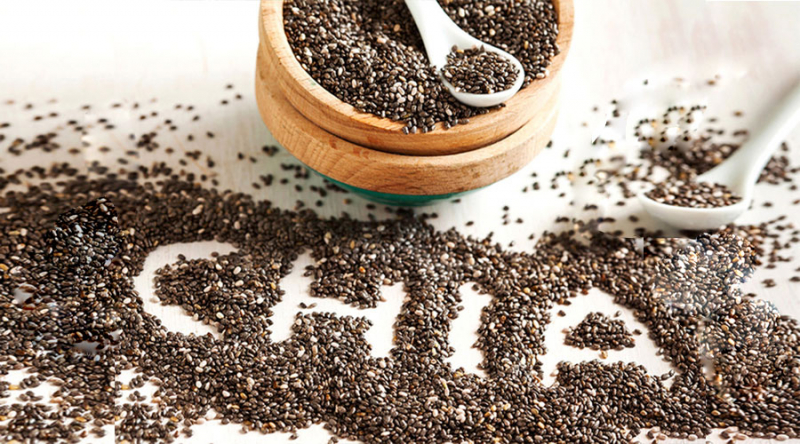
May lower your risk of heart disease 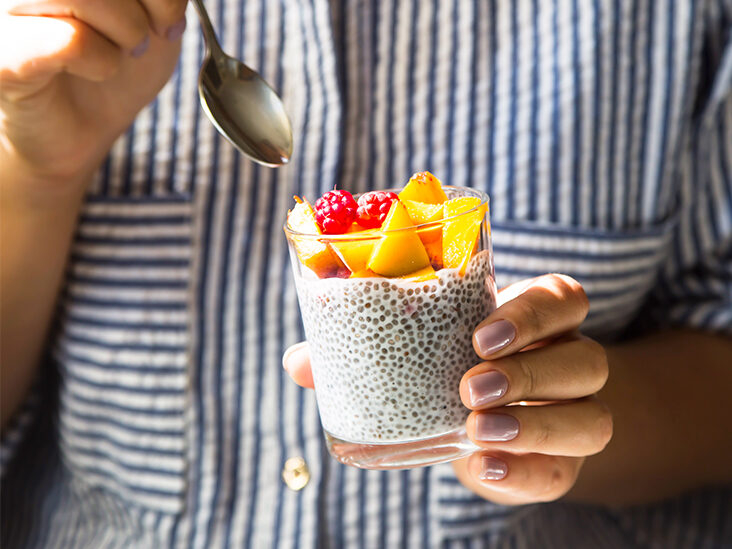
May lower your risk of heart disease -
Calcium, phosphorus and magnesium are several nutrients important for bone health and are high in chia seeds. Getting enough of these nutrients is essential for improving healthy bone mineral density, which is an indicator of bone strength, according to a number of observational studies.
Furthermore, the ALA in chia seeds may benefit bone health. Consuming this vitamin may also be linked to an increase in bone mineral density, according to observational research. So it's possible that eating chia seeds on a daily basis will maintain your bones strong. In one experiment on animals, rats given chia seeds every day for almost 13 months had higher bone mineral content than the control group. The authors came to the conclusion that ALA could have helped this benefit.
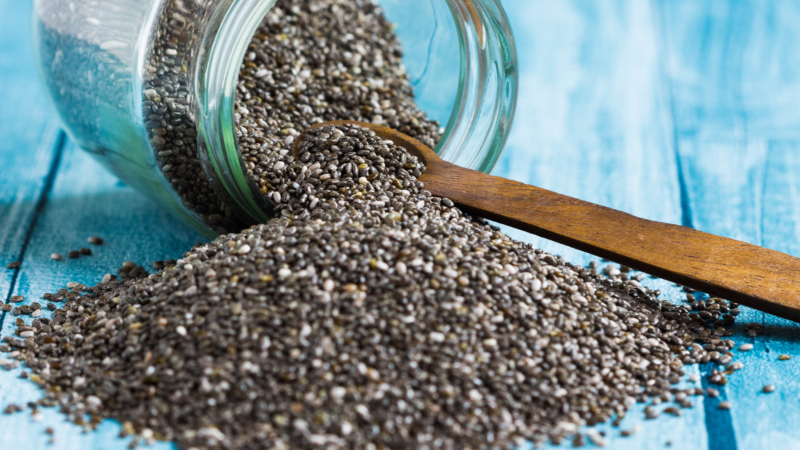
Contain many important bone nutrients 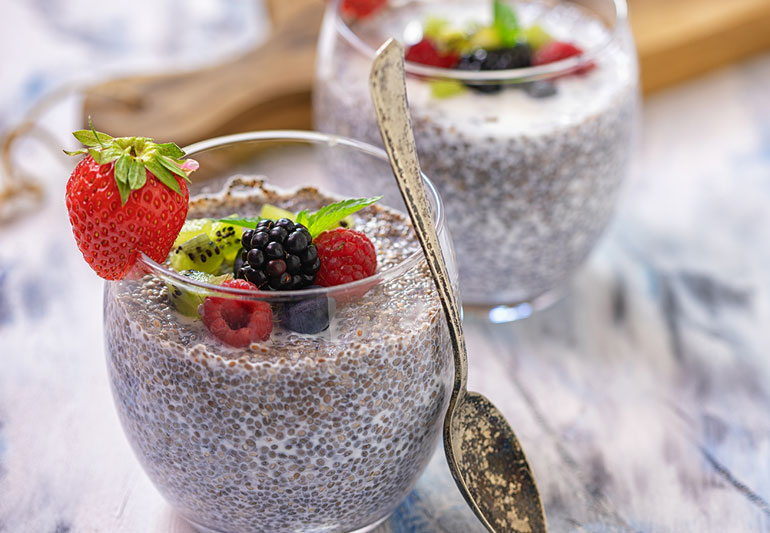
Contain many important bone nutrients -
Chia seeds' high fiber content and other beneficial compounds may help with blood sugar regulation. High blood sugar levels are common in diabetics. An increased risk of several complications, including heart disease, is linked to consistently high fasting blood sugar levels.
Animal studies suggest that chia seeds may enhance insulin sensitivity. After consumption, this may help in stabilizing blood sugar levels. Although there is a lack of human research, several earlier studies have shown promising results. According to earlier studies from 2010 and 2013, eating bread with chia seeds may help healthy adults have fewer blood sugar spikes after meals than doing so with bread without the seeds. However, additional study is needed to learn more about the relationship between these nutritious seeds and blood sugar control.
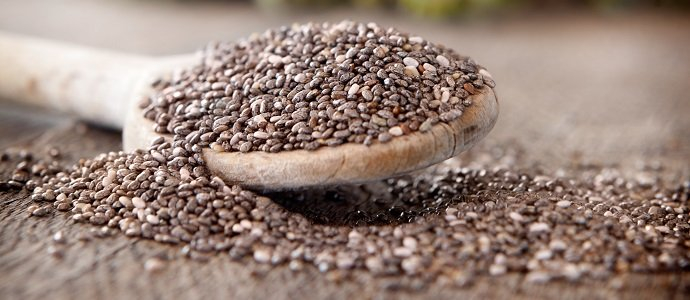
May reduce blood sugar levels 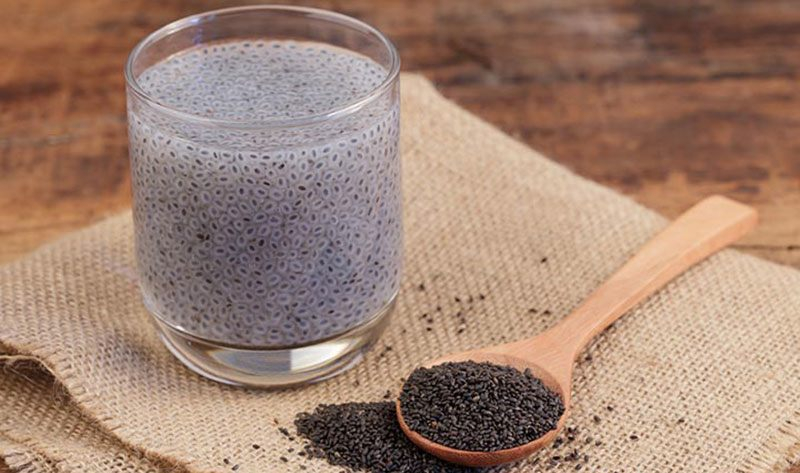
May reduce blood sugar levels -
Chia seeds are simple to include in your diet. They are a useful addition to recipes because they don't require grinding, cooking, or any type of preparation.
They may be eaten directly, dipped in juice, or added to baked goods like muffins, porridge, pudding, and smoothies. They can also be used as a garnish for rice, vegetables, yogurt, and cereal meals. Additionally, they work perfectly as a binding agent in homemade fritters. You may use them to thicken sauces and as an egg substitute because of their ability to absorb water and fat. Furthermore, they can be mixed with water to create a gel. The seeds are well tolerated. However, if you're not used to consuming a lot of fiber, eating too many seeds at once might cause you to have digestive side effects like bloating or diarrhea. 0.7 ounces (20 grams, or roughly 1.5 teaspoons) of chia seeds twice daily is a typical dose suggestion. To avoid any negative effects on your digestion, remember to drink enough water.
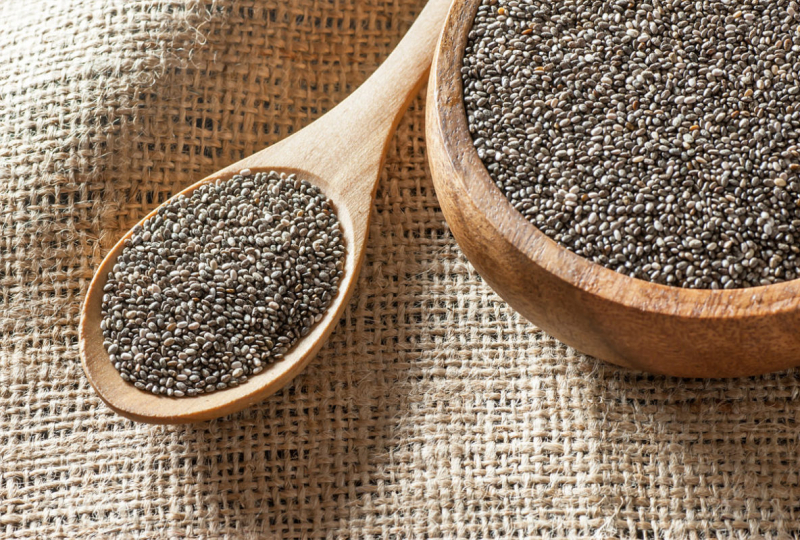
Easy to incorporate into your diet 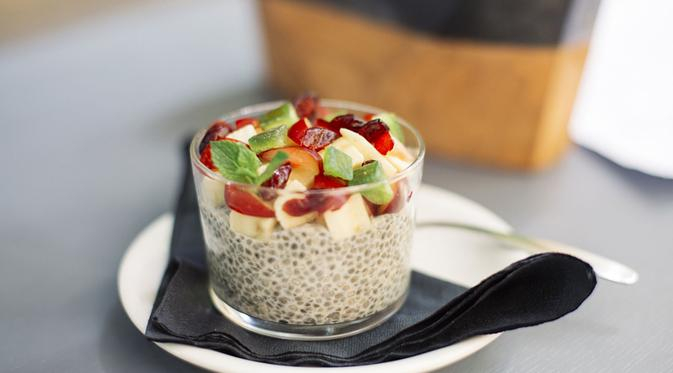
Easy to incorporate into your diet









